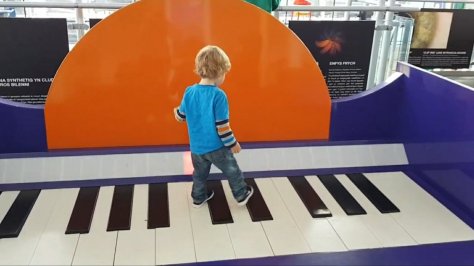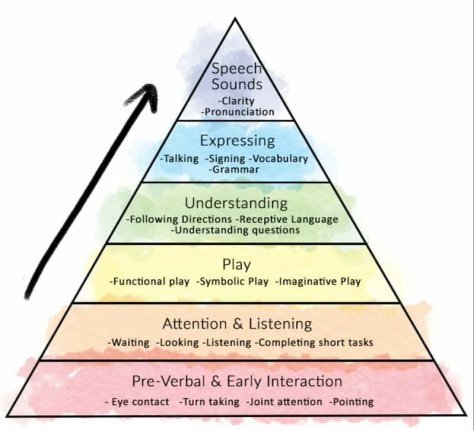“He’s been sick!” came a scream from the hallway, “OMG! Come help it is everywhere!”
I jump up and run out of the lounge where I am greeted with my husband and a headless Rhys.
“It’s all over his hoody, help me get it off!”
The top has got wedged on Rhys’ head, the hood part gathered up around his neck, closing any gap which will allow us to get it off!
Rhys stands waving his arms around in his temporary blinded state, “Stuck, stuck” he shouts in a voice which is slowly moving to a tone of fear and potentially will end in only one outcome – one of meltdown.
“Watch his ears!” I shout – unsure why shouting is necessary, but seems to feel apt in these sort of situations. I push my fingers between Rhys’ neck and the orange material of the top, easing it over the one side of his head, but it pulls the other side tighter where my husband is attempting to do the same thing.
“We need to communicate!” he shouts, agreeing that panic shouting is necessary. Rhys adds his continuous screams for freedom, claustrophobia setting in.
We look at each other, a plan formed without the need for words. After a bit of agreed coordinated communication and team work, we somehow contort Rhys into some sort of gymnastic position and relieve him from his temporary restraint.
Rhys stands in the hallway, his bare arms poking out of the t-shirt, his little face one of confusion after the ordeal he has just had to be part of.
“Where was he sick?” I ask, still in a volume a bit to high for the situation, but my heart rate is still slightly elevated from the rouge hoody incident.
“There” says my husband pointing to the kitchen floor, while gagging, his mouth open and a paleness overtaking his face. (And he calls himself a man!)
The floor has that mucus type sick which is normally produced when the stomach has nothing left to throw at you.
I take a deep breathe and grab some kitchen roll and spray while Rhys gets a wet wipe and check over by his father.
As our panicked voices subside and we get on with our assigned roles, a little voice, which has been quiet for the last ten minutes, breaks through the silence.
“Make cakes?” it says. Rhys’ face has a questioning look, and still in a slightly confused state.
I look up bewildered, and slightly thankful that my son is feeling ok enough to engage with us.
Then my husband laughs, a little to loudly, and stops consoling his recently vomiting son.
“What’s so funny?” I say, while on my knees, spray in hand trying to return the floor to its recently polished, clean state.
“He wanted to make cakes!” confirms my husband, and then shows me the frying pan from the morning’s breakfast, containing a broken egg amongst some egg shells.
I look at the manky, used kitchen towel in my hand, small pieces of egg shell are visible amongst the mucus.
“I guess we are making cakes!” I say.
“Chocolate cake!” says Rhys.
“OK, chocolate cake!”
🍰🥚🤢🍰🥚🤢🍰🥚🤢🍰🥚🤢






